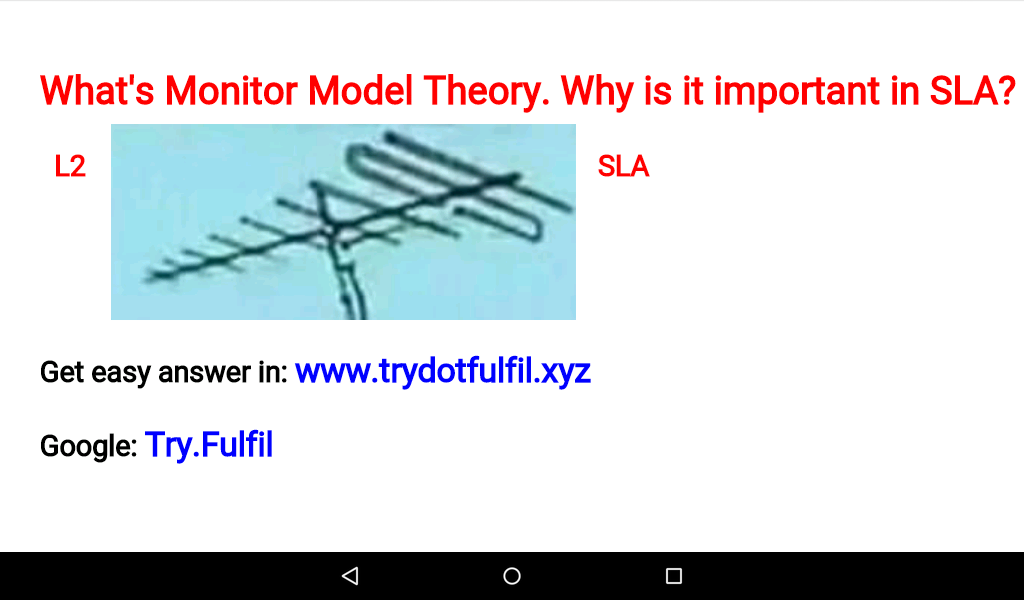What is monitor model theory? What implication does it have for L2 teaching / Why Monitor model theory is important in SLA / Second Language Acquisition?
ANSWER:
(Short Points: Monitor model theory, Five hypotheses, Acquisition learning hypothesis, Monitor hypothesis, Affective filter hypothesis, Natural order hypothesis, Input hypothesis.)
Stephen Krashen postulated the Monitor Model Theory of L2 or Second Language Learning or SLA ( Second Language Acquisition ). This theory provides an overall shape of L2 learning or second language learning. Stephen Krashen claims, this theory is supported by a vast number of scientific studies. Monitor model theory deals with five hypotheses about SLA.
Five hypotheses of Monitor Model are displayed bellow:
1. Acquisition Learning Hypothesis.
2. Monitor Hypothesis.
3. Affective Filter Hypothesis.
4. Natural Order Hypothesis.
5. Input Hypothesis.
Acquisition Learning Hypothesis:
Acquisition is the subconscious acceptance of knowledge. It is implicit. Acquisition is exploited by children in acquiring first language.
Learning is the conscious acceptance of knowledge of a language, that's the grammar. Acquisition is more important than learning.
Monitor Hypothesis:
Monitor hypothesis describes the use of acquisition and learning. There is utterance in acquisition where the learned system 'monitors' the utterance. 'Monitor' assures the accuracy of utterance. Monitor users are of three types: monitor over-users, monitor under-users, optimal monitor users.
Affective Filter Hypothesis:
'Affect' refers to the anxiety, motivation, stress and feelings. Stephen Krashen stated that 'affective filter' obstacles language acquisition. It can prevent L2 learning process. If the affective filter is up, language learning stays in barrier. If it's low, language learning easily occurs.
Natural Order Hypothesis:
Stephen Krashen suggested that learners acquire rules of a language in a natural order. Some grammatical features are acquired early while others are gained later. e.g. Using 's' in third person singular number is easy to state but tough to apply by the learners.
Input Hypothesis:
Language acquisition occurs when there is a 'comprehensible input', means when the learners understand input language. Stephen Krashen claims that the comprehensible unit should be a bit beyond the learner's current level of language ability (i+1).


















0 Comments